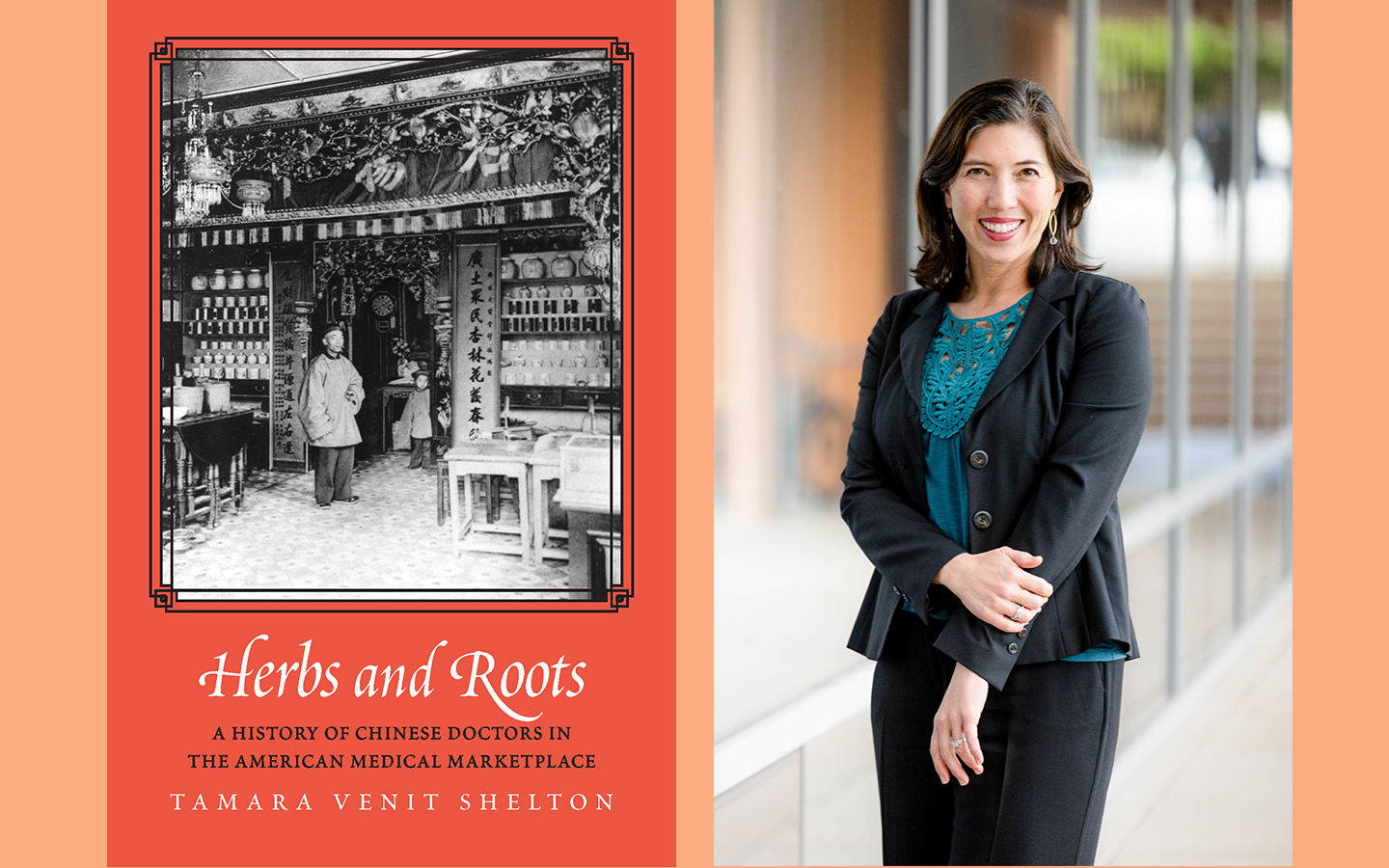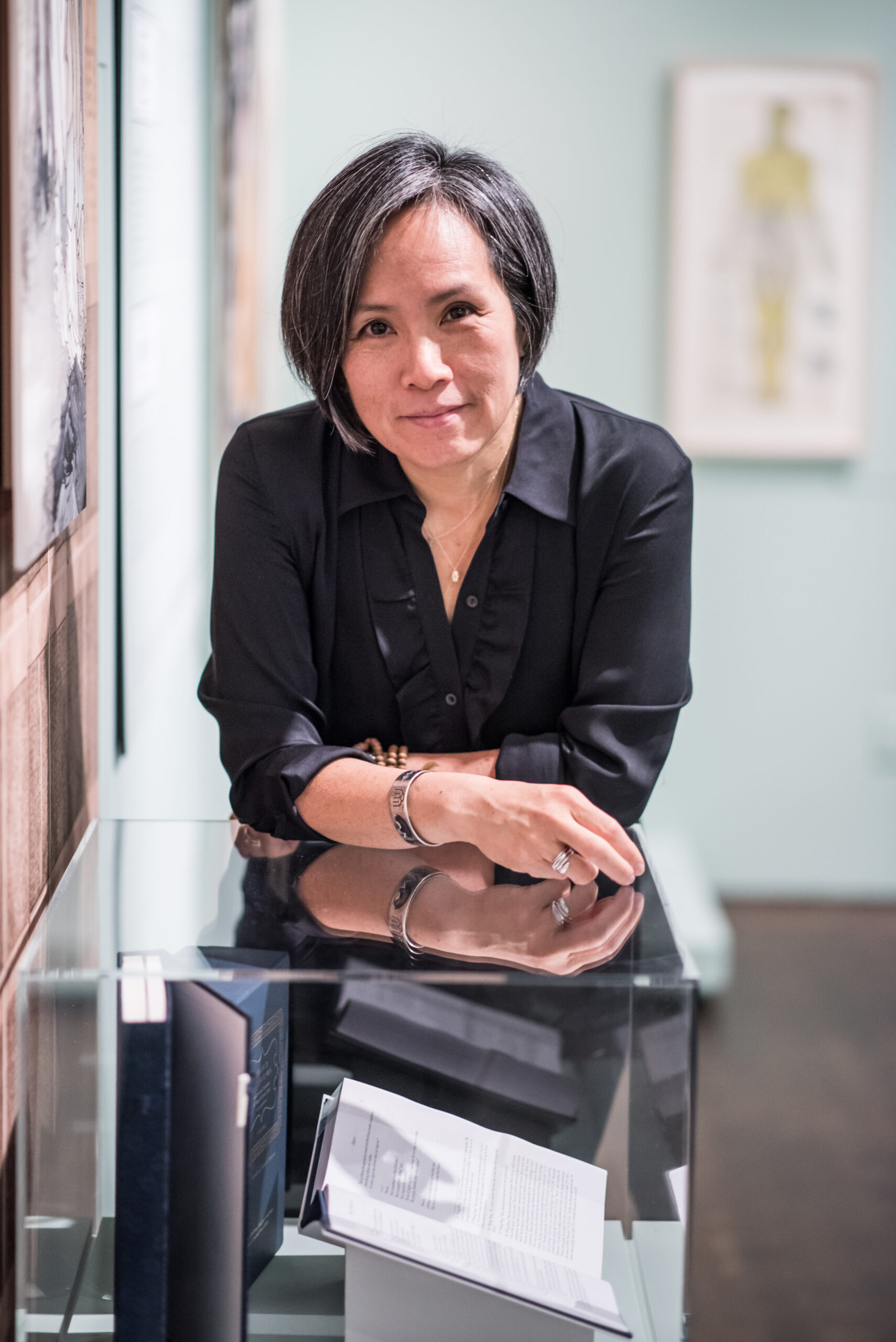
MOCA TALKS with Tamara Venit-Shelton
Herbs and Roots: A History of Chinese Doctors in the American Medical Marketplace
March 14, 2024, 6:30 pm – 7:30 pm
Free – $28.00

Can’t attend in person? Register for virtual participation here
Join us at the Museum of Chinese in America (MOCA) for our MOCA TALKS series, featuring a captivating conversation with Tamara Venit-Shelton on Herbs and Roots: A History of Chinese Doctors in the American Medical Marketplace. This event will take place on Thursday, March 14, from 6:30 to 7:30 PM ET, offering a profound exploration of the rich history and evolution of Chinese medicine within the American medical landscape.
Tamara Venit-Shelton, a distinguished professor of history at Claremont McKenna College, will delve into the journey of Chinese medicine across roughly two centuries in the United States. She will uncover how this ancient practice was brought over by immigrants and transformed through interactions with doctors, patients, missionaries, scientists, and merchants, becoming a vital part of America’s medical tapestry. Herbs and Roots illustrates the adaptive and resilient nature of Chinese medicine, from its early days predating mass Chinese emigration to its resurgence in the 1970s. Venit-Shelton’s book reveals the challenges Chinese doctors faced, the integration of their practices, and how Chinese medicine has both complemented and contested the dominance of Western medical paradigms.
The discussion will be moderated by Donna Mah, a practitioner deeply rooted in the principles of connection and calibration fundamental to health and healing. Mah also served as the guest curator for MOCA’s 2018 exhibition Chinese Medicine in America: Converging Ideas, People, and Practices. This event is not just a historical dialogue but also an opportunity to understand the role of Chinese medicine in shaping health practices and its contributions to the American medical marketplace.
About Tamara Venit-Shelton
Tamara Venit-Shelton is a professor of history at Claremont McKenna College where she teaches courses on the American West, Asian American history, environmental history, and the history of medicine. She is the author of two books: A Squatter’s Republic: Land and the Politics of Monopoly in California, 1850-1900 (University of California Press, 2013) and Herbs and Roots: A History of Chinese Doctors in the American Medical Marketplace (Yale University Press, 2019), which won the 2020 Phi Alpha Theta Award for Best Book.

About Donna Mah
Donna Mah served as the Guest Curator for MOCA’s 2018 exhibition Chinese Medicine in America: Converging Ideas, People, and Practices. In a series of twelve narrative arcs punctuated by art and artifacts, the exhibit explored Chinese medicine through the historical, philosophical, and clinical lenses of its ancient origins and modern expression. Donna is a NYS licensed Acupuncturist and Chinese medicine practitioner, providing patient care in private practice and research. Through wellness programs and in her faculty role in Chinese medicine and Interprofessional education, she works to connect Chinese medicine principles and philosophy to the health and healing processes of individuals, families, organizations, and communities.
About Herbs and Roots
Herbs and Roots: A History of Chinese Doctors in the American Medical Marketplace chronicles roughly two hundred years of Chinese medicine as a dynamic system of knowledge, therapies, and materia medica brought to the United States and transformed by immigrants, doctors, and patients as well as missionaries, scientists, and merchants. Chinese medicine has a long history in the United States, dating back to its colonial period and extending up to the present. Well before mass emigration from China to the United States began, Chinese materia medica crossed the oceans, in both directions: Chinese medicinal teas and herbs came west while Appalachian ginseng went east. Beginning in the 1850s, Chinese immigrants came to the United States and transplanted their health practices, sometimes quite literally by propagating medicinal plants in their adopted home. Chinese doctors established businesses that catered to both Chinese and non-Chinese patients. They struggled during the Great Depression and World War II, but conditions that seemed to precipitate the decline of Chinese medicine in the United States in fact laid the foundations for its rediscovery in the 1970s. Over time, Chinese medicine – along with other medical knowledge systems deemed “irregular,” “alternative,” or “unorthodox” – both facilitated and undermined the consolidation of medical authority among formally trained western-style medical scientists.